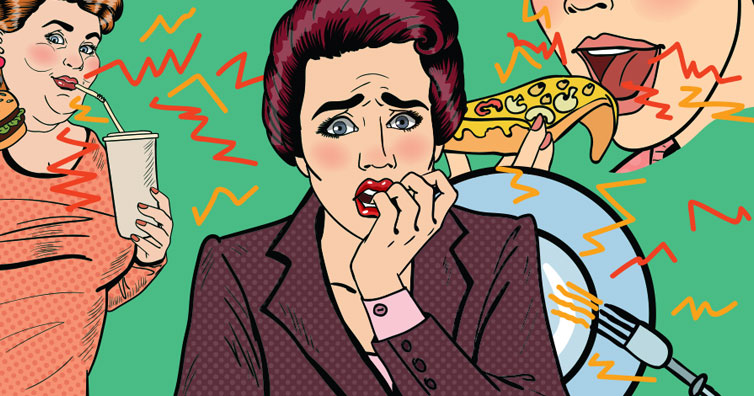Some people abhor it. Imagine the scene. You are a family dinner gathering and the person beside you is chewing her food loud. Do you feel a certain irritation inside you? Do you feel like screaming and telling her to stop making ‘that’ sound?
E-Cigarettes Found To Have 10 times More Cancer Causing Ingredients Than Regular Cigarettes.
Medical science determines that you are probably suffering from Misophonia i.e. a strong aversion to certain sounds or noises. A selective sound sensitivity syndrome, it always begins with a trigger. Moreover, this condition is oral, no wonder it activates from a person chewing his food loud.
However, researchers from Northwestern University tell that it is a good sign in the sense that such hypersensitive people have high skills. More information operates inside the brain than an average human and the attention span expands. In two thinking tests conducted as experiments revealed a new scope of the study. In the first test, a succession of beeps would record a person’s brain tasks. Apart from these tests, looking back at the French novelist Marcel Proust, he too had attached a row of corks on the wall of his room to block any possible sound.
WebMD states that a person suffering from mild Misophonia will have anxiety issues in such a situation. He or she will feel uncomfortable and leave the place. But if the irritation is severe, he may experience intense emotions like anger, fear, rage, distress and other emotional turmoil. This, in turn, gives birth to social anxiety in that person. He may experience awkwardness whenever he participates in any social gathering or get-togethers.
8 Early Warning Signs Your Blood Sugar Is SUPER High.
The condition of Misophonia usually starts at an early age between 9 to 13 and is more common in females than males. Misophonia should not be confused with bipolar disorder as many doctors do. The causes or reason behind this disorder is unknown. But often it is similar to a patient with bipolar disorder symptoms, obsessive-compulsive disorder and anxiety disorder symptoms.
Coping with this issue certain techniques like tinnitus retraining therapy while the person learns ways to tolerate and absorb the sound calmly. I imagined, this particular therapy is extremely exhausting and debilitating since you are constantly exposed to the particular noises you hate. But the outcomes are miraculous. Another technique is a cognitive behavioral therapy which can also be applied.
Dr. Marsha Johnson, an audiologist involved with the Oregon Audiology Clinic, after thoroughly studying misophonia, its symptoms and after-effects for more than 20 long years have concluded that certain ear-level machines that take and create audio or sounds from nature and all around us. Also having other sounds in those ear devices have successfully lowered this disorder in 85% people and given them beneficial relief from strain and stress.












